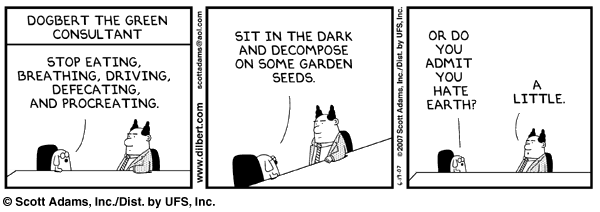Wolfy Blitzer looks appeared as an annoying little boy with the men on stage.
First question:
"Knowing what you know now, would you have voted differently on the Iraq war resolution?"
Come on. Of all the repetitive questions posed today, this is as inherently beta sigma as any. Romney, who's winning the debate, essentially told Blitzer, well, that he was retarded.
(Paraphrased): "I believe that, given what we knew at the time, the bi-partisan support for the war was reasonable, and we had a successful campaign to overthrow the Hussein regime. We had poor strategy after that, we weren't realistic enough, and we've struggled. Today, we need to look forward with hope and strategy to win. We do that by asserting Iraqi control over-"
Blitzer: (paraphrased) "Mr. Governor, you refuse to answer my question, which was given what you know now, would you support the war?"
Romney: (paraphrased, but not much) ":shakes head: I did answer that question as rationally as a sane person would expect. That's a non sequitor-- a null sac, we look forward today."
Same with all the other candidates.
It's preposterous that there was another evolution question, but Gov. Huckabee gave an incredibly eloquent response to it.
Other asinine questions, or poorly worded ones:
"Is science wrong on global warming?" Um. No one says "science is wrong." It's about the interpretation and scientific belief.
"Would you pardon Scooter Libby."
"Did you read the IAGS Briefing #something before the Iraq war?" Oooh, yes, I remember that! It was paper number 234235 on my desk! I read it thoroughly. Kudos to secondary assistant director to legislative coordinator at CIA, very good.
So, at halftime: Less than 15% of the questions were remotely pertinent. The Town Hall portion was better.
Romney winning.
McCain up. his defense of McCain/Kennedy immigration was excellent, drawing on the patriotism of Hispanic soldiers. I like him more, I'd campaign for him now.
Gilmore (oddly) up.
Paul probably up (simply because so many dumb questions were just for him)
Huckabee steady. He should be killing it in the debates, but he seemed flustered a couple of times, with technical difficulties and such.
Tancredo steady.
Giuliani down.
Thompson (T.) down.
Brownback down.
Wolfy Blitzer looks like an annoying little boy with the men on stage.
First question:
"Knowing what you know now, would you have voted differently on the Iraq war resolution?"
Come on. Of all the repetitive questions posed today, this is as inherently beta sigma as any. Romney, who's winning the debate, essentially told Blitzer, well, that he was retarded.
(Paraphrased): "I believe that, given what we knew at the time, the bi-partisan support for the war was reasonable, and we had a successful campaign to overthrow the Hussein regime. We had poor strategy after that, we weren't realistic enough, and we've struggled. Today, we need to look forward with hope and strategy to win. We do that by asserting Iraqi control over-"
Blitzer: (paraphrased) "Mr. Governor, you refuse to answer my question, which was given what you know now, would you support the war?"
Romney: (paraphrased, but not much) ":shakes head: I did answer that question as rationally as a sane person would expect. That's a non sequitor-- a null sac, we look forward today."
Same with all the other candidates.
It's preposterous that there was another evolution question, but Gov. Huckabee gave an incredibly eloquent response to it.
Other asinine questions, or poorly worded ones:
"Is science wrong on global warming?" Um. No one says "science is wrong." It's about the interpretation and scientific belief.
"Would you pardon Scooter Libby."
"Did you read the IAGS Briefing #something before the Iraq war?" Oooh, yes, I remember that! It was paper number 234235 on my desk! I read it thoroughly. Kudos to secondary assistant director to legislative coordinator at CIA, very good.
So, at halftime: Less than 15% of the questions are remotely pertinent. Absolutely horrible.
Romney won.
McCain up. his defense of McCain/Kennedy immigration was excellent. I like him more, I'd campaign for him now.
Gilmore (oddly) up.
Huckabee steady. He should be killing it in the debates, but he seemed flustered a couple of times, with technical difficulties and such.
Paul probably steady (simply because so many dumb questions were just for him).
Giuliani steady. The lightening strike was incredibly good Providence for him.
Tancredo down.
Thompson (T.) down. What an irritating name confusion
Brownback down. You're rather inclined to forget about him. That's very Presidential.
Finally, Hunter down. I don't know why Mike Reagan and Ann Coulter are saying he's the conservative candidate. He's anti-free trade, has poor rhetorical engagement, and no fund raising. Anyhow, as The Politico's Roger Simon
points out, he was quite rude in assaulting the front-runners at the very end of the debate.
Huckabee's answer to what the greatest moral threat today is was excellent. Paul's ranting against any form of pre-emptive strikes was depressing.
Fred Thompson won the debate. He wasn't there. But immediately after the debate he had an exclusive twenty minute interview with Sean Hannity on Hannity & Colmes. No tough questions, no competition, just a softie conversation with Hannity about the debate, politics, conservatism, life, love, and other mysteries.
Accordingly,
some polls now have Thompson narrowly in second place. So much for a candidate who isn't running. He's assembled an excellent team of advisers, including (to my delight) a fabulous economist to be his economic adviser,
Lawrence B. Lindsey. Lindsey understands economics, he once worked for the Council of Economic Advisers under Reagan then served on the Council for Bush 41, he's a former assistant professor at Harvard, and current Fellow at the American Enterprise Institute.
One potential high note to the candidates is the reversal in Gingrich's tone. He now
says odds are 4-to-1 that he will
not run. This is a complete reversal of his previous indications that he likely would. It also bolsters the prospects of other "conservative alternative" candidates, most significantly Fred Thompson, Mike Huckabee, and Mitt Romney. To digress, I am indeed a Thompson supporter, but I fear too much stock is placed in one aspect of his candidacy. He's not an amazing orator. He will perform Giuliani-caliber in the debates when it comes to delivery and engagement, expect him to come in third behind Romney and Huckabee.
I could be surprised, though.
I hope I am.
I'm now a Frederalist. If you think that has anything to do with James Madison or John Jay, go read that statement again.





